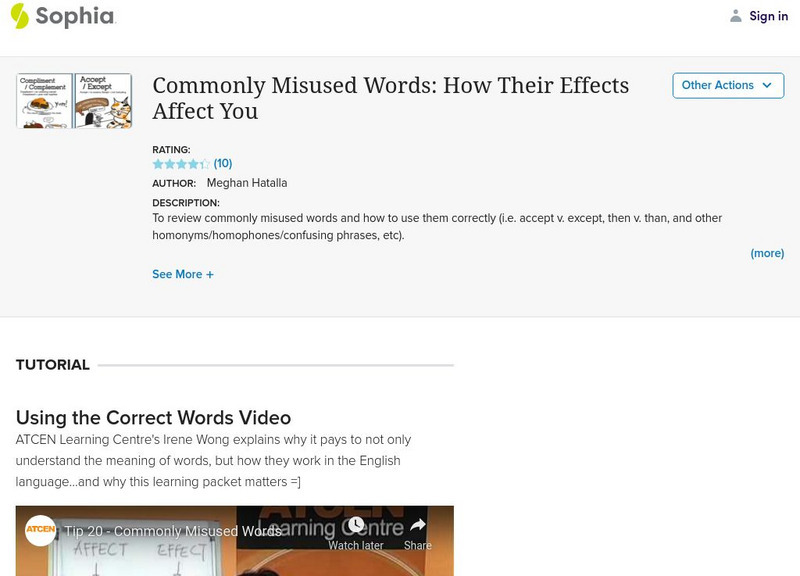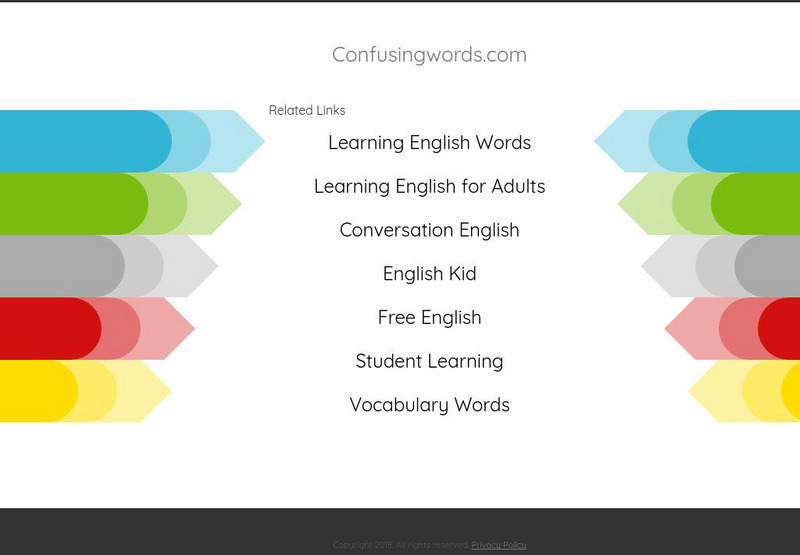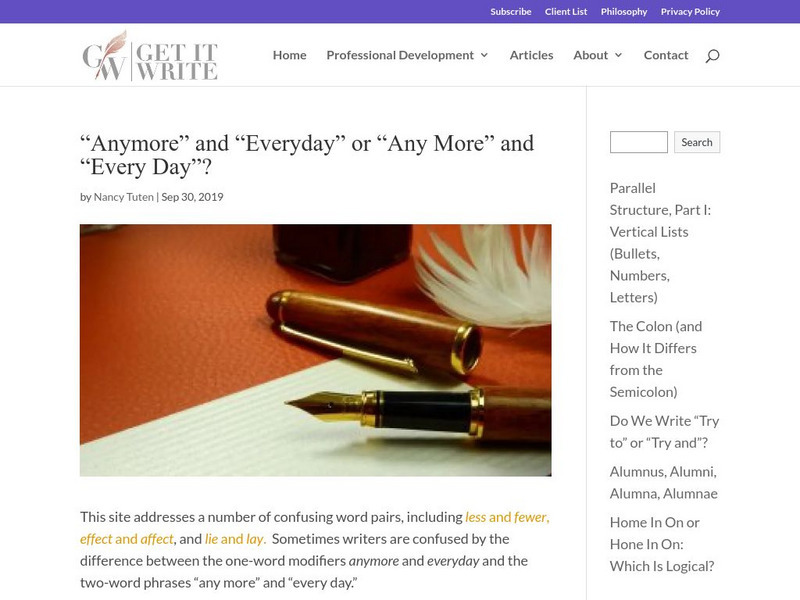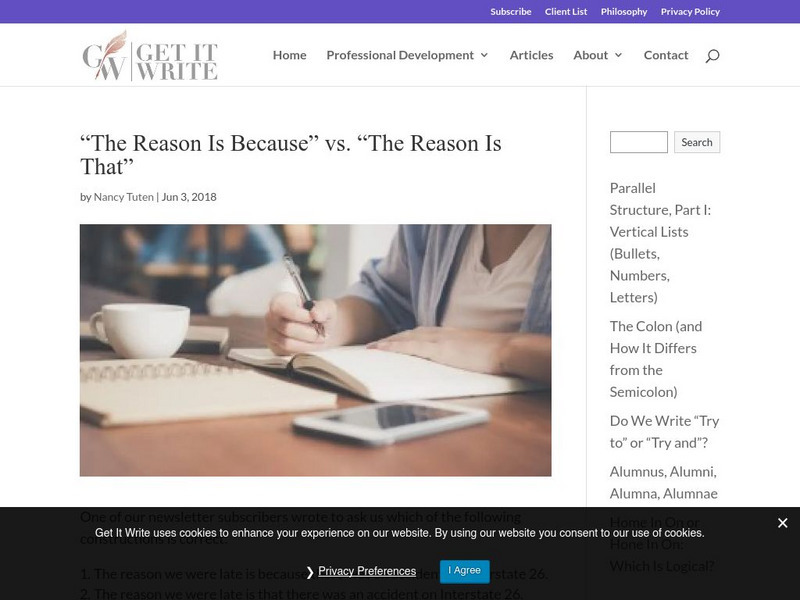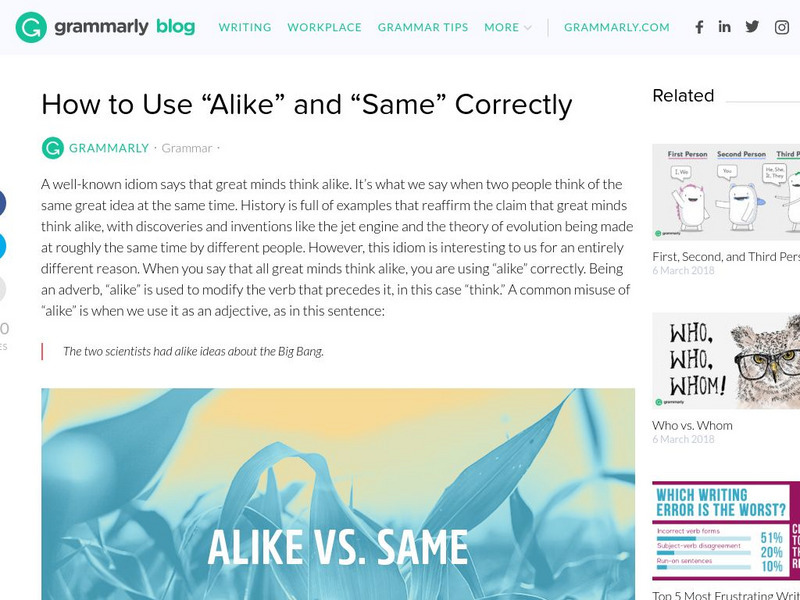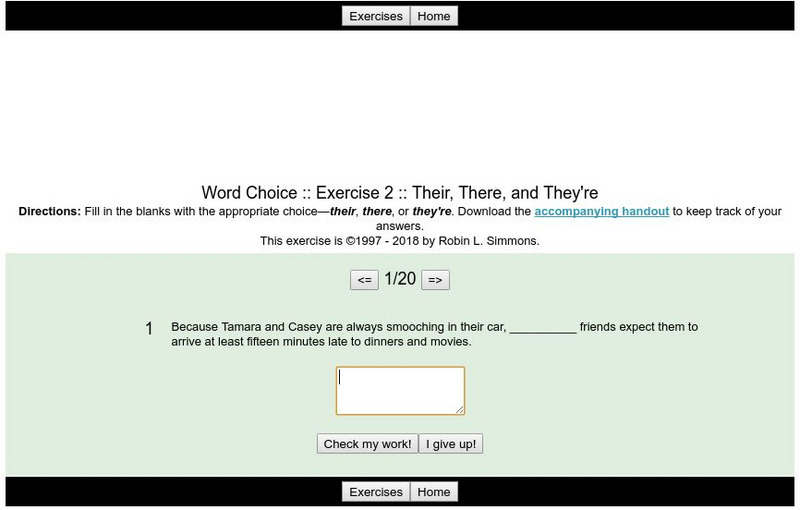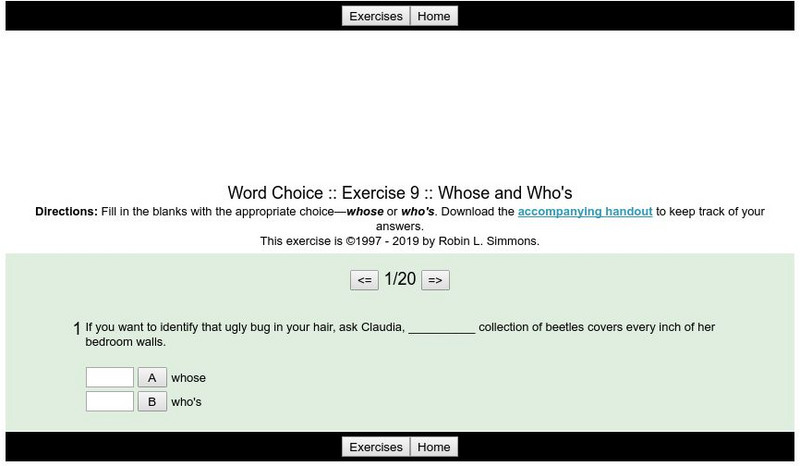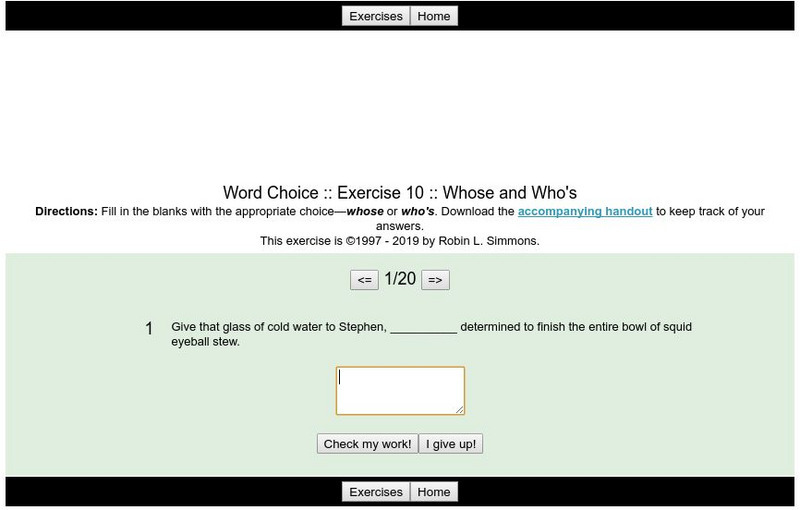Grammarly
Grammarly Blog: Sometime, Sometimes, and Some Time
An explanation with examples of using the words "sometime," "sometimes," and "some time" correctly in sentences.
Grammarly
Grammarly Blog: Misuse of Like and As
An explanation with examples of using the words "like" and "as" correctly in sentences.
Sophia Learning
Sophia: Commonly Misused Words: How Their Effects Affect You
An informative, multimedia lesson on words that are easily confused in the English language. View a video [1:11], a poster, a slide show, and a handout to learn the correct meanings of several commonly misused words.
Capital Community College Foundation
Guide to Grammar and Writing: Notorious Confusables #5
In this quiz, students are to read sentences looking at the two words in all caps including their spellings. They must decide what, if anything, needs to be changed, and select the correct answer. Links are also provided for a tutorial,...
Other
Santa Monica College: J. Cheney: Affect and Effect
Definitions, parts of speech, and sentence examples of "affect" and "effect," followed by five sentences where students choose the correct word to complete each sentence. When finished, students can submit answers to have their work...
Sophia Learning
Sophia: Commonly Misused Words
This audio lesson discusses some commonly misused words. The author provides a "cheat sheet" to define the differences in the commonly misused words. Examples of the correct applications of the words are also provided for further...
Other
Santa Monica College: J. Cheney: Leave or Let?
Read the definitions of the words "leave" and "let." Then complete six sentences by choosing the correct verb to fill in the blanks. Finally, check the answers to see how many are correct and return to the exercise to redo any that are...
Other
Santa Monica College: J. Cheney: Can or May?
Students read the definitions of the words "can" and "may" and complete five practice sentences by choosing the correct words to fill in the blanks. When finished, students can click submit to see the correct answers as well as their...
Get It Write
Get It Write: Anymore and Everyday
Knowing the difference between the use of words adverbially and adjectivally is essentia, especially when using "anymore" and "any more" and "everyday" and "every day." A very good explanation of the usage is given along with many...
Get It Write
Get It Write:tuten and Swanson: "The Reason Is Because" vs. "The Reason Is That"
This site briefly explains why the phrase, "the reason is because," should never be used when you mean "the reason is that." A self test is provided at the end of the article.
Love To Know Media
Your Dictionary: Middle School Lesson for Who vs. Whom
This site offers two lessons with worksheets and answer keys on the use of who vs. whom as subjects and objects and relative pronouns.
Grammarly
Grammarly Blog: How to Use "Alike" and "Same" Correctly
An explanation with examples of using the words "alike" and "same" correctly in sentences.
Robin L. Simmons
Grammar Bytes: Word Choice: Exercise 1: Their, There, and They're
Complete these 20 sentences by choosing the correct form of their, there, and they're.
Robin L. Simmons
Grammar Bytes: Word Choice: Exercise 2: Their, There, and They're
Complete these 20 sentences by typing the correct form of their, there, and they're.
Robin L. Simmons
Grammar Bytes: Word Choice: Exercise 9: Whose and Who's
Test your understanding of the words "whose and "who's" by choosing the word that best completes each of the twenty sentences. Immediate feedback on answers is provided and a percentage score is tallied throughout the quiz.
Robin L. Simmons
Grammar Bytes: Word Choice: Exercise 10: Whose and Who's
Test your understanding of the words "whose and "who's" by typing the word that best completes each of the twenty sentences. Immediate feedback on answers is provided and a percentage score is tallied throughout the quiz.
Robin L. Simmons
Grammar Bytes: Word Choice: Exercise 13: Its and It's
Test your understanding of the words "its" and "it's" by choosing the word that best completes each of the twenty sentences. Immediate feedback on answers is provided and a percentage score is tallied throughout the quiz.
Robin L. Simmons
Grammar Bytes: Word Choice: Exercise 14: Its and It's
Test your understanding of the words "its" and "it's" by typing the word that best completes each of the twenty sentences. Immediate feedback on answers is provided and a percentage score is tallied throughout the quiz.
Capital Community College Foundation
Guide to Grammar and Writing: The Notorious Confusables
This 12 question quiz covers commonly confused words such as than/then, it's/its, and whether/weather. Links are provided to more quizzes and the "Guide to Grammar and Writing."
Fun Brain
Fun Brain: Word Confusion (Choose the Correct Word)
Players choose the word that correctly completes a sentence from a pair of words that are frequently misused or misspelled, such as they're and there, blue and blew, aunt and ant.
Bartleby
Bartleby.com: Strunk's Elements of Style: Words and Expressions Commonly Misused
Common misused words are defined. Examples of how to use them correctly are provided. Some examples are "all right" to "would", "as good or better than", and "as to whether."
Love To Know Media
Your Dictionary: Teaching Confused and Unfamiliar Words
This article provides tips for teaching confused and unfamiliar words to students. These include being familiar with the words, using pictures to visualize the words, and practicing.
Get It Write
Get It Write: Distinguish Between "Effect" and "Affect"
"Effect" and "affect" are tricky words to keep straight. Each can be used as a noun or a verb, depending on the meaning of the sentence. This tutorial gives clear examples and explanations on the use of these two words. A brief quiz...




